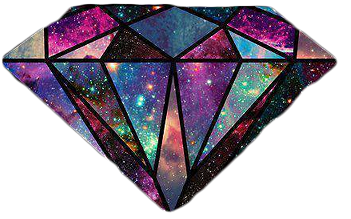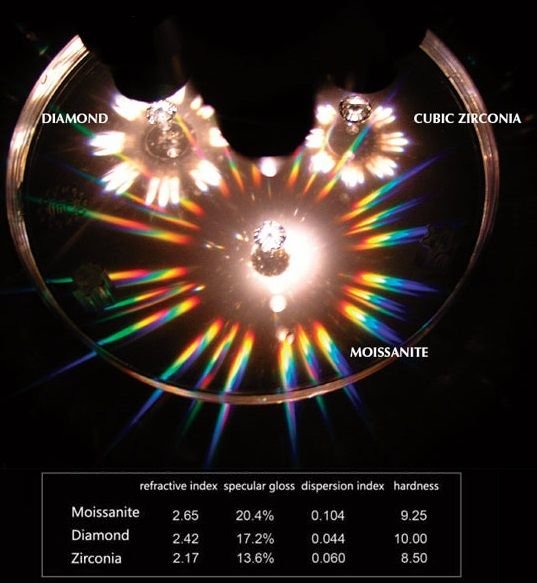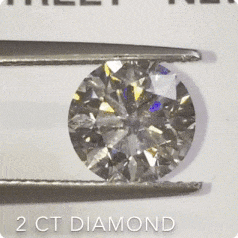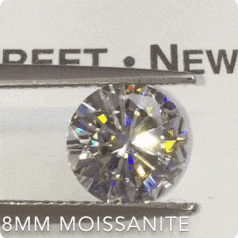
Introduction
Humans have been fascinated by diamonds ever since they were first mined in India about 3.000 – 6.000 years ago. The reason for this fascination is derived from their unique properties, mainly:
Diamond is the hardest material known to man. It reaches a 10 on the Mohs scale and can only be scratched by other diamond.
It has an extremely high refractive index of n=2.42, which means that light travels though diamond 2.42 times more slowly than air. This behavior results in a higher reflection of light back to the observer and hence determines the brilliance (or sparkle).
Diamond has the ability to disperse light, meaning it can split light into its different colors (like a prism). Hence a diamond sparkles in all the colors of the rainbow.
These properties make them ideal for jewlery since they will never scratch and always look beautiful.
Moissanite
Moissanite is a crystal made from silicon carbide (SiC) and was first discovered by Henri Moissan while examining rock samples from a meteor crater located in Arizona in 1893. Other than in meteorites, natural Moissanite is very rare and only occurs as microscopic crystals – impossible to use in jewelry.
However, in 1998 Charles & Colvard received patents to create and market lab-grown silicon carbide gemstones, becoming the first firm to do so. Luckily, their patents expired in 2016.
Moissanite vs. Diamond

As can be seen from the image, Moissanite beats diamond in terms of optical properties. A Moissanite will sparkle and reflect colors much more brilliantly / colorful.
When it comes to hardness: Yes, diamond is the winner. However, a 9.25 on the Mohn scale is extremely tough. There are very few substances that would be able to scratch it. Namely diamond and boron (carbide).
If you're not purposefully trying to scratch Moissanite it is practically impossible to happen.
A further advantage of Moissanite is that it always is crystal clear and has no inclusions – unlike natural diamond. However, be careful to get the "Forever One" Moissanite if you want a perfectly white stone. Other brands may have a slightly yellowish tint.


Conclusion
If you don't like the color dispersion, then Moissanite is not for you.
If you want the stone with the hardest material on earth, then Moissanite is not for you.
If you want a “natural” stone, because you attach some kind of emotional value to that, then Moissanite is not for you.
If you want a durable, beautiful stone with a strong sparkle and many colors, then Moissanite is absolutely for you!
Oh..and I almost forgot.. If you want an expensive stone, then Moissanite is nothing for you, too.
A 0.5 ct. Moissanite costs only about 200$, whereas a diamond with same color grade and clarity will trade in the range of 2.000$ to 5.000$! However, Moissanite is still much more expensive than Cubic Zirconia, which would cost only 2$.
Congratulations @iamnobody! You have received a personal award!
Click on the badge to view your own Board of Honor on SteemitBoard.
Congratulations @iamnobody! You received a personal award!
Click here to view your Board of Honor
Congratulations @iamnobody! You received a personal award!
You can view your badges on your Steem Board and compare to others on the Steem Ranking
Vote for @Steemitboard as a witness to get one more award and increased upvotes!